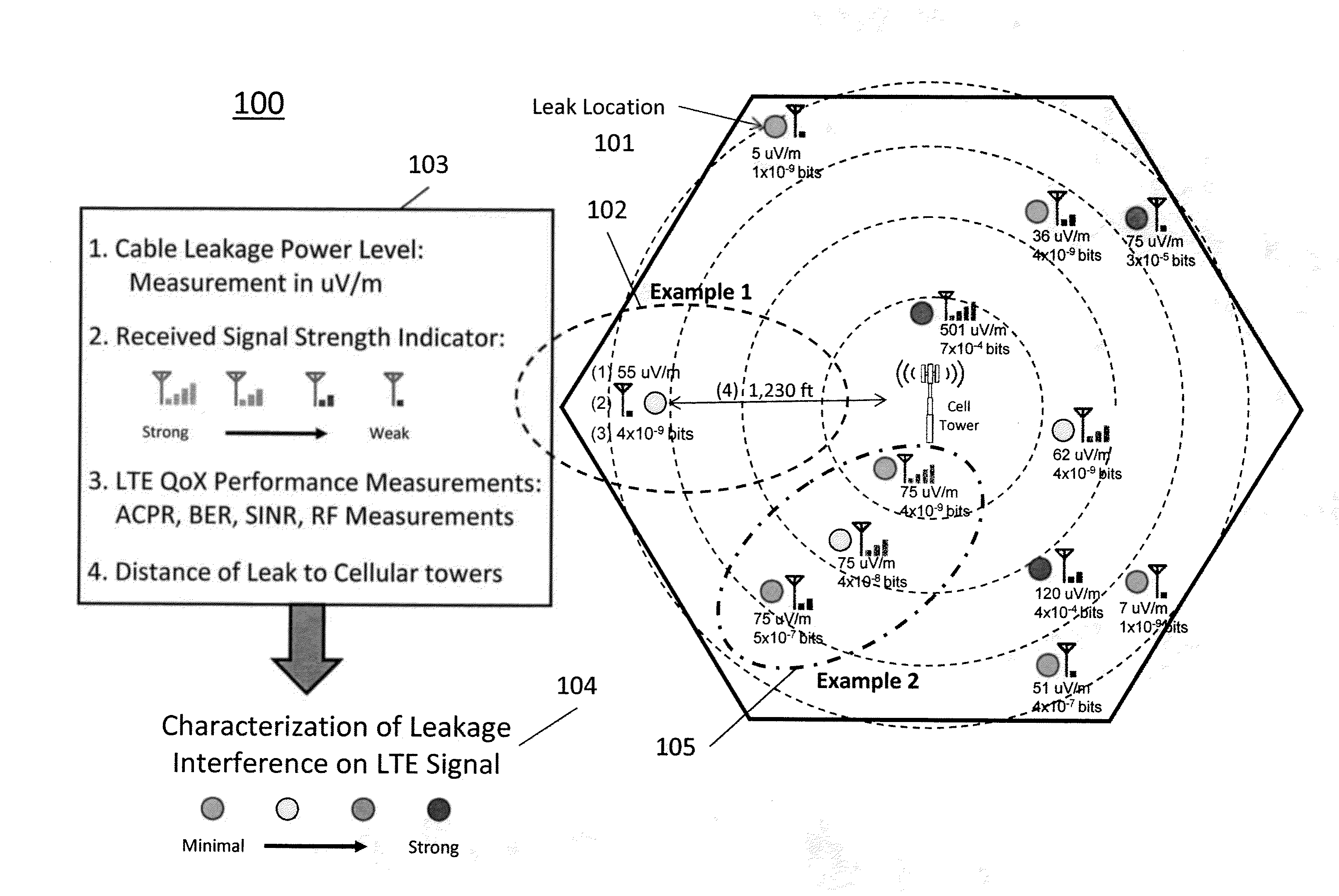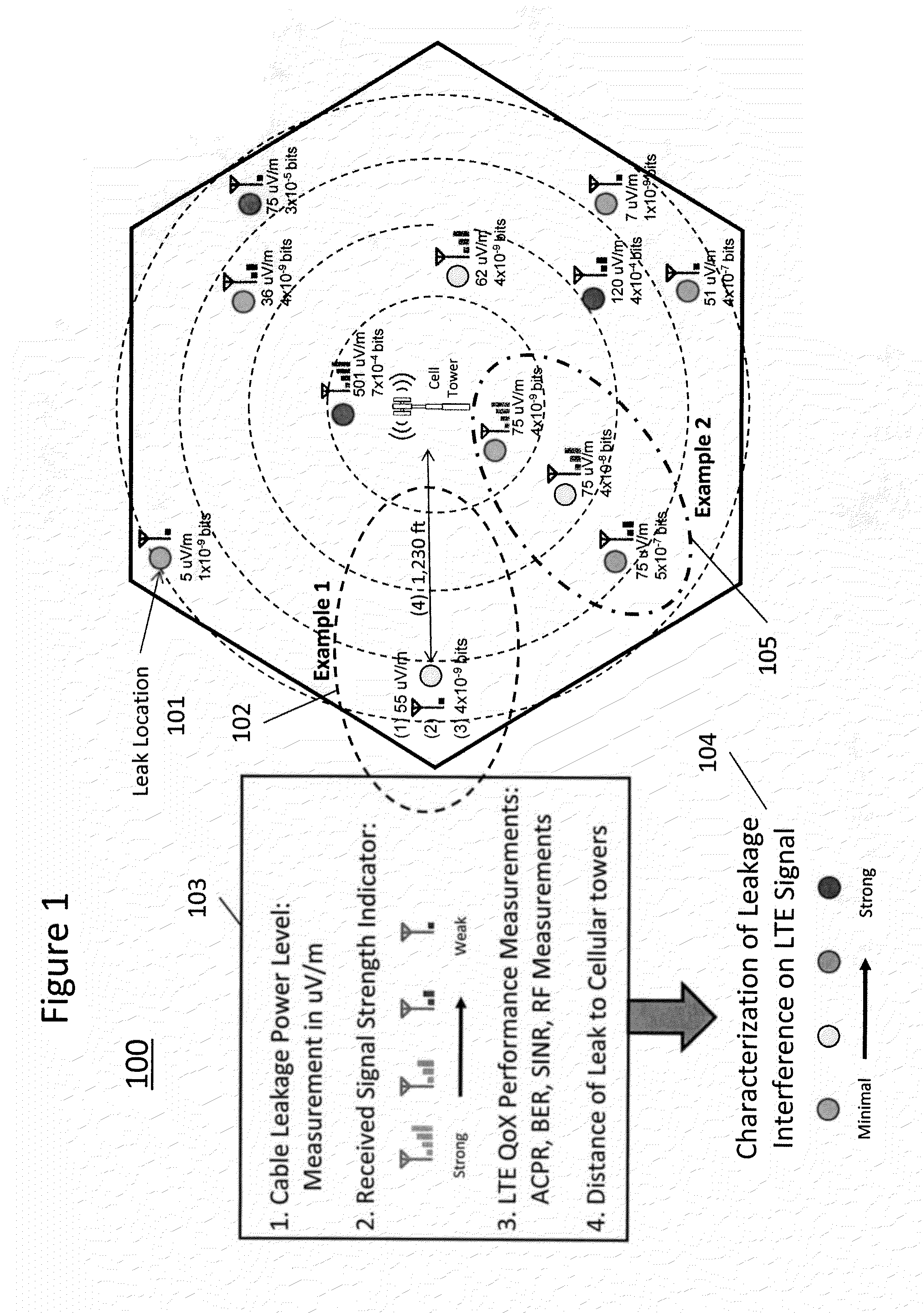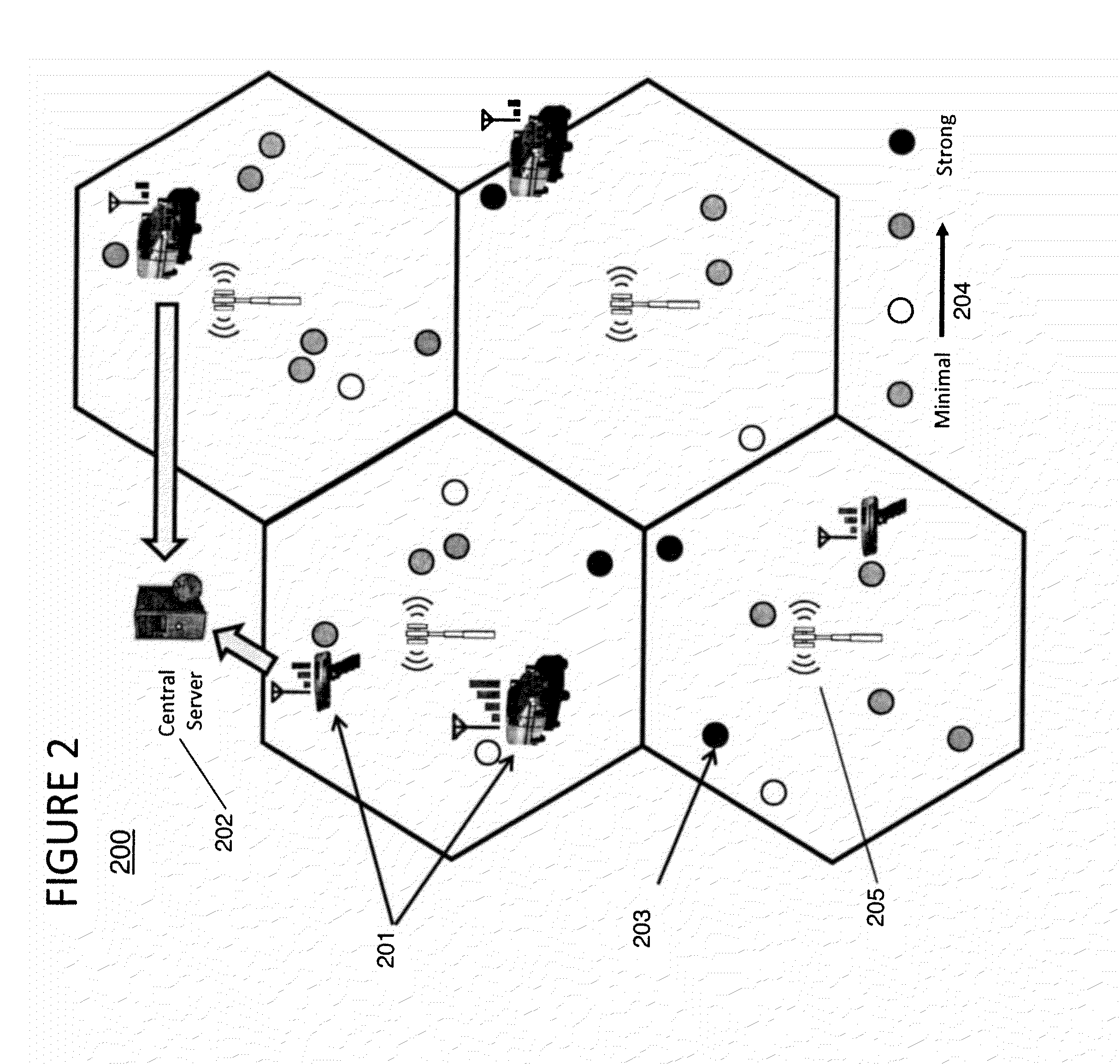Characterizing cable leakage interference priorities on LTE
- Summary
- Abstract
- Description
- Claims
- Application Information
AI Technical Summary
Benefits of technology
Problems solved by technology
Method used
Image
Examples
Embodiment Construction
[0027]Referring now to the drawings, and more particularly to FIGS. 1-5, an exemplary embodiment of the method and structures according to the present invention will now be described.
[0028]As exemplarily described below, the present invention helps cable operators prioritize their resources appropriately to maintain their cable infrastructure in a manner that minimizes the amount of interference with LTE services. If cable operators fail to eliminate leakage interference and the problem continues to grow, the FCC will likely step in and force operators to turn off the 16 QAM channels that occupy the 700 MHz to 800 MHz frequency range. The number of QAMs impacted would increase once the 600-700 MHz spectrum is converted for LTE use. This would have a very damaging and costly impact on the operators.
[0029]The present invention teaches that a key to reasonably manage leaks is to prioritize them based on their impact on the both over-the-air services and on their own cable service (ingr...
PUM
 Login to View More
Login to View More Abstract
Description
Claims
Application Information
 Login to View More
Login to View More - R&D
- Intellectual Property
- Life Sciences
- Materials
- Tech Scout
- Unparalleled Data Quality
- Higher Quality Content
- 60% Fewer Hallucinations
Browse by: Latest US Patents, China's latest patents, Technical Efficacy Thesaurus, Application Domain, Technology Topic, Popular Technical Reports.
© 2025 PatSnap. All rights reserved.Legal|Privacy policy|Modern Slavery Act Transparency Statement|Sitemap|About US| Contact US: help@patsnap.com



